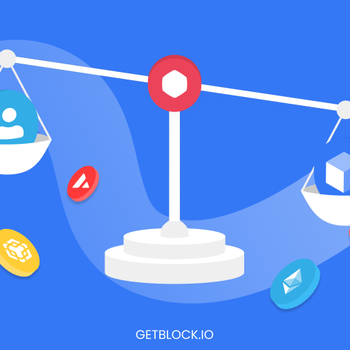Top DevOps Trends to Watch in 2020
in DevOps , AIOps , Kubernetes , Serverless

A recent study by research firm IDC shows that DevOps generated $2.9 billion in the market in 2017. The number is projected to reach up to $6.6 billion by 2022.
As a critical element of software project development, DevOps has deeply affected the overall development pattern of the software world. Many experts predict that DevOps will gradually become the mainstream model of software engineering and will reach its peak in 2020. Therefore, developers are no longer stuck on whether they are interested in being part of the journey. Instead, they should start planning and practicing DevOps-related technologies and methods.
Today, many companies in the industry are adopting DevOps's product delivery model. According to Statista's statistics, the number of companies that have embraced DevOps across the company has grown from 10% in 2017 to 17% in 2018.
In 2020, the acceleration of the frequency of delivery of application projects and microservices should slow down. To ride the wave, DevOps teams will need to revise their approach.
Here are some of the DevOps trends we would expect to accelerate in the year 2020.
Automation and more automation
DevOps adoption is considered as automation would be the norm in the process. The perfect choice is a zero-touch process. Understanding the "6C" DevOps lifecycle and ensuring automation between these phases of the period is vital, and this will be the key goal in 2020.
The 6C cycle is - continuous business planning, collaborative development, continuous testing, continuous release and deployment, continuous monitoring, and collaborative customer feedback and optimization.
Information control
The use of data is closely monitored as the GDPR (General Data Protection Regulation) becomes a reality in the year 2019, and similar privacy laws are enacted worldwide. Information labeling is required to implement such control. Therefore, the tools associated with management and labeling of data will be critical in tracking their source and use.
Additionally, confidential information of the company must be encrypted. This stretches the importance of dealing with encryption keys with the option to rotate and store securely. Services providing such functionality will be widely used in the DevOps world in the coming days.
Chaos and resilience engineering in DevOps
The movement which brings together application development and IT operations will be more customer-oriented and include methods considered for a time as radical such as chaos engineering.
Netflix has popularized the approach with the Chaos Monkey resiliency tool. Chaos engineering, which is testing the resilience of a distributed system into production, causing outages, will become a choice to identify risks in complex environments.
According to the research firm Forrester in their study of DevOps in 2020, chaos engineering will meet the framed world of governance, risks, and compliance. Chaos engineering is the best option for identifying risks in systems that have become too complex to be tested adequately by other means.
"Changes to digital systems are becoming harder to test because of the increasing size and complexity of microservice environments," Forrester analysts said in their study. "It is, therefore, essential to continually assess and maintain the resilience of systems in production."
The report further added that replicating expensive interconnected systems is often time-consuming in non-production integration environments, so it is a better idea to discover evolving failure modes by exposing the production environment in controlled constraints.
In Resilience Engineering, resilience is more precisely defined as "a system is resilient if it can adjust its functioning prior to, during, or following events (changes, disturbances, and opportunities), and thereby sustain required operations under both expected and unexpected conditions."
"You can think of robustness as being able to deal well with known unknowns, and resilience as being able to deal well with unknown unknowns." ~ David Woods. Professor, Integrated Systems Engineering
The DevOps model allows developers to shape resilient applications and infrastructure quicker while parallelly safeguarding an improved response to production incidents.
Infrastructure security is one of the fields where resilience engineering can be used. This approach is considered a new way to think about security. Unlike the classic risk analysis and risk management approaches that are based on the analysis of the linear cause-effect approach, the resilience engineering adopts a perspective that refers to the theory of complexity and aims to review the analysis models to create security processes that are flexible and robust.
Chaos engineering's experiments allow developers to discover resilience faults without causing serious production incidents. Chaos engineering and strategy with the help of automated software in the complex systems will be an area that we can look forward to maturing more in the year 2020.
The decrease in the frequency of deployments
Companies with the most advanced DevOps approach deliver apps and services more frequently. However, overall, the speed of deployments in different sectors is stagnating. In 2020, we would expect a 5% decrease in the frequency of deployments, according to Forrester analysts.
But speed isn't everything. In addition to the security requirement, the success of DevOps initiatives also depends on measuring the commercial obtained results.
Improving speed, efficiency, and quality
The performance of a DevOps approach is not just about the speed and frequency of deployments. The value brought to the success of this approach is another key indicator.
According to a recent Harvard Business Review Analytics Services (HBR) survey for Google Cloud, 86% of IT decision-makers interviewed consider the speed of deployment of new applications critical. However, only 10% believe the application and rapid production developments carried out by their organization to be successful.
To understand the whole, the use of software tools for managing application performance in real-time, A/B tests to measure the conversion rate or tools for instrumentation, measurement, and control of the computer code, should progress next year.
Kubernetes development will make significant progress
Kubernetes is considered the fastest-growing container technology because of the ease of use and its functionality. This tool has acquired a sizable open source community, and around the world, many CIOs and system architects have begun to use it in depth.
In 2020, rapid growth is expected in the development and expansion of this technology. We hope that in 2020, Kubernetes will usher in wider popularity and more significant development as various enterprises further adopt container technologies to run their cloud-native applications. Of course, Kubernetes-based container orchestration software will gradually replace some old DevOps features.
DevSecOps will be crucial in the development
Continuous integration/continuous delivery (CI/CD) lets you use faster changes to meet the requirements of customers, so developers need to consider all approaches to safe development at the design stage of software.
With the sharp surge in security vulnerabilities events and the severe impact of various security incidents on the company's reputation, more companies and even countries are beginning to realize the importance of network security. While companies enjoy the fast delivery efficiency of DevOps, they need to make security a part of the design specification and fully consider the general security requirements from the beginning.
In 2020, DevSecOps will continue the upward trend. The development team will focus more on DevSecOps in the application development life cycle, by reducing the vulnerability of various programs natively, so that security can better match business goals, and enhance the reputation of the enterprise.
The DevSecOps model assumes that everyone in the project will assume responsibility for security. This collaborative effort in software development will help reduce the burden of accountability and ensure the safety and efficiency of the development process. The model provides that each code in the development is responsible for security, which makes the process easier to classify how, where, and what went wrong.
Artificial intelligence and data science collaboration
More and more AI-powered applications will drive the data science team to look for DevOps in their workflow. The DevOps approach promises to be the leading choice for handling automation pipelines, as well as maintaining and testing multiple deployed models in the production chain.
To improve the effectiveness of developing, deploying, and managing applications powered by AI and ML (machine learning), the data science and development teams will continue to work closely together to complement each other's skills and delivery levels. In 2020, the DevOps team will find more potential customers through the perfect delivery of various workflows with the help of automation.
Everything as Code
It is undeniable that 'Infrastructure as Code' has become one of the main pillars of the IT department and its service system. Therefore, a thorough understanding of various DevOps tools and corresponding automation scripts can play a vital role in the daily software development process of an enterprise.
In 2020, such practices will dominate the implementation process of various projects. The prospects of an enterprise's business and the future quality of its products will more or less depend on the comprehensive technical capabilities of developers, testers, and operations staff.
Because DevOps is designed to reduce lead times, developers need to introduce "everything as code", including Infrastructure as Code, Security as Code, Storage as Code, Configuration Management, and Compliance as Code. The "As code" adds a layer of safety, collaboration, reusability, and continuous improvement; this is why "everything as code" improves the efficiency of software development and production.
The idea of "everything is code" will be the primary focus of DevOps during the year 2020. In 2020, in the face of the ongoing wave of DevOps, if software testers have not yet begun to learn Infrastructure as code and some popular DSLs, they may find it more difficult in the coming year.
Conclusion
Whether it's about offering development services, creating innovative products, or selling goods, DevOps has become an unavoidable part of the success stories of companies. For many companies, DevOps has become a de-facto mode of delivering results.
All these predicted trends for the year 2020 direct that DevOps will be entering new horizons of software development and operation, security, and quality engineering.
Get similar stories in your inbox weekly, for free
Share this story:

The Chief I/O
The team behind this website. We help IT leaders, decision-makers and IT professionals understand topics like Distributed Computing, AIOps & Cloud Native
Latest stories
How ManageEngine Applications Manager Can Help Overcome Challenges In Kubernetes Monitoring
We tested ManageEngine Applications Manager to monitor different Kubernetes clusters. This post shares our review …
AIOps with Site24x7: Maximizing Efficiency at an Affordable Cost
In this post we'll dive deep into integrating AIOps in your business suing Site24x7 to …
A Review of Zoho ManageEngine
Zoho Corp., formerly known as AdventNet Inc., has established itself as a major player in …
Should I learn Java in 2023? A Practical Guide
Java is one of the most widely used programming languages in the world. It has …
The fastest way to ramp up on DevOps
You probably have been thinking of moving to DevOps or learning DevOps as a beginner. …
Why You Need a Blockchain Node Provider
In this article, we briefly cover the concept of blockchain nodes provider and explain why …
Top 5 Virtual desktop Provides in 2022
Here are the top 5 virtual desktop providers who offer a range of benefits such …
Why Your Business Should Connect Directly To Your Cloud
Today, companies make the most use of cloud technology regardless of their size and sector. …
7 Must-Watch DevSecOps Videos
Security is a crucial part of application development and DevSecOps makes it easy and continuous.The …








